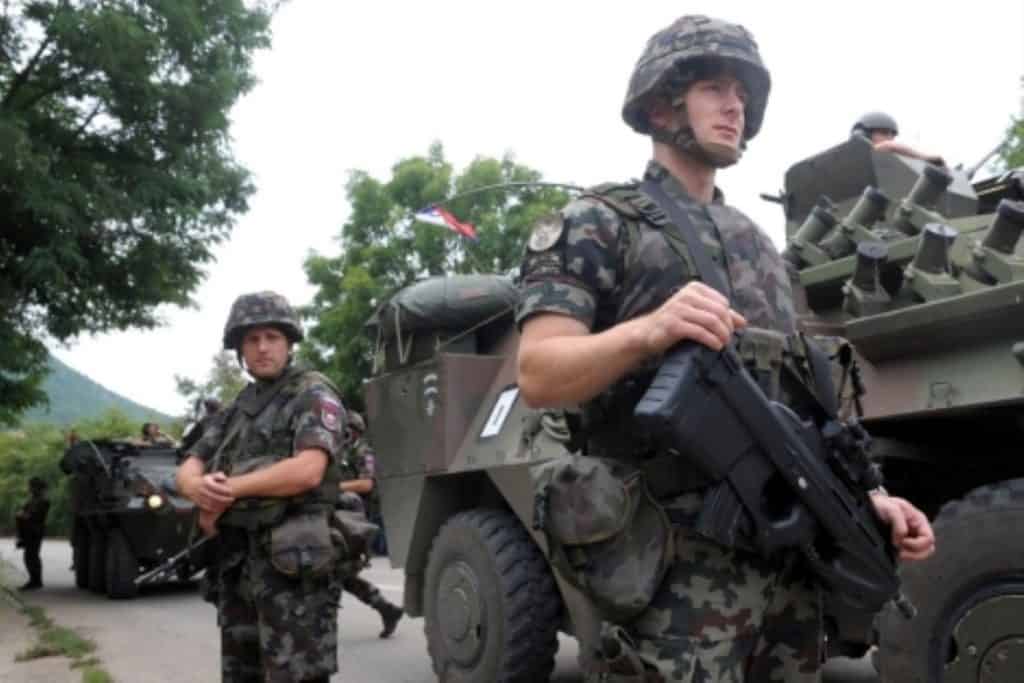By Denis Korkodinov
The confrontation between Serbia and Kosovo has been the main problem of the Balkans over the past 11 years and threatens to turn back into the headache of the entire international community.
The essence of the long-standing confrontation in the Balkans is that Belgrade refuses to recognize the independence of Kosovo.
This fact constitutes the main obstacle to the accession of Serbia and Kosovo to the European Union. Now the situation is such that countries are ready to forget about their differences in order to implement the European integration project. However, such plans do not meet the interests of Moscow, as a result of which the Balkans may again become the arena of struggle between various regional players.
U.S. Deputy Secretary of State David Hale in March 2019, through a proposal to abolish Kosovo tariffs on Serbian goods, provoked another wave of conflict between Belgrade and Pristina. In turn, this conflict showed Washington’s particular interest in creating tension in the Balkans. Moscow, which officially supports Serbia, is forced to respond to the created tension, but so far without a tangible result.
It is worth noting that the Serbs gained independence in the Balkans during the First World War. Despite attempts to forcibly albanize the region, the Serbs managed to maintain their own identity and remain the titular nation. However, during World War II, the situation changed dramatically. The Third Reich and its allies launched the process of unification of Kosovo and Albania, as a result of which the Albanian population was in a privileged position.
Subsequently, Yugoslavia recognized the exclusive rights of autonomy for Kosovo within the framework of a single state, where Serbs played a dominant role. This caused discontent among local Albanians, who demanded that they be granted broad rights and freedoms. Under pressure from the Albanian opposition, Serbs gradually began to leave Kosovo, which allowed Albanians to make up about 80 percent of the local population at the time of the collapse of Yugoslavia. A similar national imbalance was the reason for accusing the Albanians of ethnic discrimination of Serbs.
The key moment that served as the trigger for the development of the Serbian-Albanian conflict into the stage of armed confrontation was the policy of Slobodan Milosevic. In his presidential campaign, he actively used anti-Albanian rhetoric, which allowed him to receive significant support among the Serbian electorate. Having come to power, Slobodan Milosevic made an attempt to expel the Albanians from Kosovo.
However, the local population put up armed resistance, as a result of which the Kosovo Liberation Army was formed. This took advantage of the countries of the North Atlantic Alliance, which hastened to send troops into Kosovo. And now, after a long lull in the Balkans, the region again risks being in a state of war between Kosovo and Serbia.
The situation is complicated by the fact that on October 6, 2019, early elections will be held in Kosovo. This decision followed the resignation in July 2019 of the Prime Minister of Kosovo, Ramush Haradin, accused of leading the rebel movement against Serbian forces in 1998-1999, when he was commander of the Kosovo Liberation Army.
According to opinion polls, in the process of forming a new cabinet of the republic, no political party will receive the support of the majority, and therefore, long negotiations on the coalition are expected. This state of affairs may indicate that conflicting political groups in Kosovo can use violence as the main argument in the struggle for a deputy mandate.
In addition, experts predict that the new Kosovo government is likely to resume dialogue with Belgrade on normalizing relations, which is the main condition for Kosovo and Serbia to join the European Union. In turn, such expectations cause concern for Russia, which is trying in every possible way to hinder the process of European integration of the Balkans, seeing this as a threat to its own security.
Therefore, to strengthen its position, Moscow is not interested in supporters of the republic’s accession to the EU dominating the Kosovo’s future coalition government. To this end, the Russian leadership may consider expanding its military presence in the region, which is likely to cause irritation from many Kosovo politicians.
(The views expressed in this article belong only to the author and do not necessarily reflect the views of World Geostrategic Insights)
Image Credit: AFP







